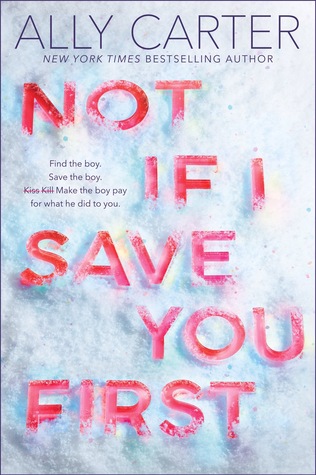 |
| Click to view on Goodreads |
Tash didn't want to go to camp, didn't want to spend the summer with a bunch of strangers, didn't want to be separated from the only two people she has ever been able to count on: her uncle Kevin, who saved her from foster care, and Cap'n Jackie, who lives next door. Camp turns out to be pretty fun, actually, but when Tash returns home, Cap'n Jackie is gone. And Tash needs her — the made-up stories of dolphin-dragons, the warm cookies that made everything all right after a fight, the key Cap'n Jackie always insisted had magic in it. The Captain always said all Tash had to do was hold it tight and the magic would come. Was it true? Could the key bring Cap'n Jackie back? In a heartfelt and stunningly written story, Pat Schmatz introduces readers to a tenacious, fiercely loyal girl struggling to let go of the fantasies and fears of her childhood . . . and say yes to everything that lies ahead.
(208 pages)
Hmm. I enjoyed reading The Key to Everything while I was in it, but once I set it down I frankly just put it out of my mind entirely. I'm actually reviewing it several months after I read it, because I had no interest in reviewing it for so long and now I kind of have to.
It's hard to understand why I had this reaction after putting the book down, because it really is an interesting and engaging read. It does rather jump straight into the middle of a story by cutting to Tash's return home from summer camp after a big row with her next door neighbor/mother figure Cap'n Jackie. We basically just have to pick up the pieces of the story as the book goes along, which is fine but kind of disorienting at first because Tash's home situation is quite unique.
Cap'n Jackie is suddenly in a nursing home, and Tash is desperate to figure out how to reach her and save her, using the "magic" key from their childhood stories and finding a way to apologize for the nasty things she said before leaving for camp. It's an interesting and engaging (and emotional!) premise, and it's fairly well done.
But at the same time, I think I just didn't have enough personal experience with the characters and their dynamics to feel the full impact of the blows the Captain's injuries caused. I felt bad for Tash, but I also didn't really know Tash well enough to be fully invested in her story.
Perhaps that's just the curse of shorter books, which I'm not used to reading. Whatever it is, I do still recommend The Key to Everything if you're interested (with the caveat that there is a gay couple, so be warned if that's something you don't want). Maybe you can get more out of it than I did.
I'm surely not the only person who's enjoyed a book well enough but put it down feeling rather empty. If that has happened to you, I want to hear about it in the comments!
Disclaimer: I received a complimentary copy of this novel from the publisher in exchange for an honest review.
Hmm. I enjoyed reading The Key to Everything while I was in it, but once I set it down I frankly just put it out of my mind entirely. I'm actually reviewing it several months after I read it, because I had no interest in reviewing it for so long and now I kind of have to.
It's hard to understand why I had this reaction after putting the book down, because it really is an interesting and engaging read. It does rather jump straight into the middle of a story by cutting to Tash's return home from summer camp after a big row with her next door neighbor/mother figure Cap'n Jackie. We basically just have to pick up the pieces of the story as the book goes along, which is fine but kind of disorienting at first because Tash's home situation is quite unique.
Cap'n Jackie is suddenly in a nursing home, and Tash is desperate to figure out how to reach her and save her, using the "magic" key from their childhood stories and finding a way to apologize for the nasty things she said before leaving for camp. It's an interesting and engaging (and emotional!) premise, and it's fairly well done.
But at the same time, I think I just didn't have enough personal experience with the characters and their dynamics to feel the full impact of the blows the Captain's injuries caused. I felt bad for Tash, but I also didn't really know Tash well enough to be fully invested in her story.
Perhaps that's just the curse of shorter books, which I'm not used to reading. Whatever it is, I do still recommend The Key to Everything if you're interested (with the caveat that there is a gay couple, so be warned if that's something you don't want). Maybe you can get more out of it than I did.
I'm surely not the only person who's enjoyed a book well enough but put it down feeling rather empty. If that has happened to you, I want to hear about it in the comments!
Disclaimer: I received a complimentary copy of this novel from the publisher in exchange for an honest review.




